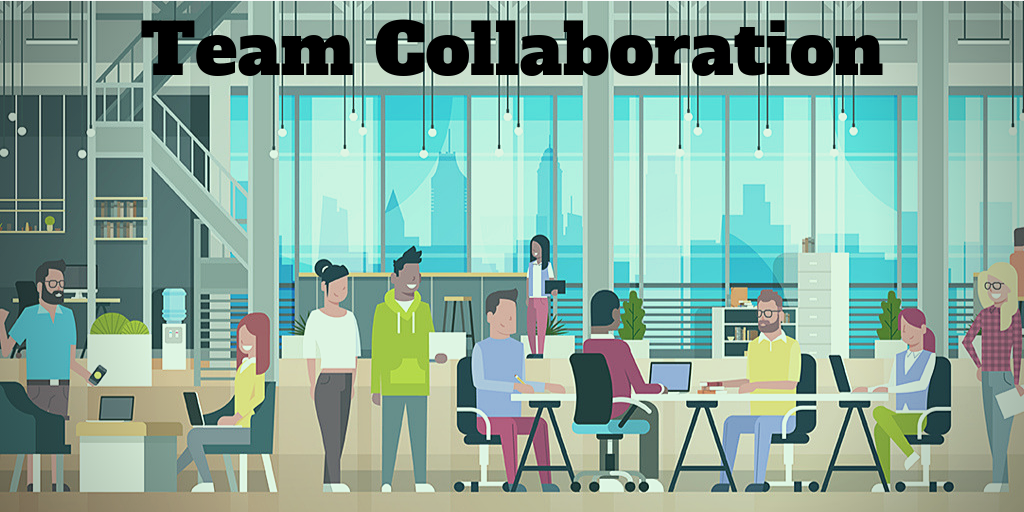Effective group collaboration is essential in any environment, whether in the workplace, academic settings, or community organizations. Collaboration brings diverse perspectives, improves problem-solving, and enhances creativity. However, achieving productive collaboration requires intentional efforts to create the right environment and utilize the right tools. Let’s explore strategies for enhancing group collaboration and the benefits it brings to teams.

Understanding the Importance of Collaboration
Collaboration is more than just working together; it involves sharing ideas, skills, and resources to achieve a common goal. When teams collaborate effectively, they leverage individual strengths, leading to innovative solutions and improved outcomes. Collaboration fosters a sense of belonging and mutual respect among team members, enhancing overall morale and productivity. It also allows for knowledge-sharing, where team members learn from each other and develop new skills.
Establishing Clear Goals and Roles
For any group to collaborate effectively, there must be clarity around goals and roles. Setting clear goals gives team members a shared purpose and direction. Everyone should know what they are working towards and the expected outcomes. Similarly, defining roles ensures that each team member understands their responsibilities. This reduces confusion and prevents overlap or gaps in tasks. When roles are clearly defined, team members can focus on their strengths and contribute more effectively.
Encouraging Open Communication
Open communication is the foundation of successful collaboration. It involves creating an environment where team members feel comfortable sharing their ideas, concerns, and feedback. Encouraging open dialogue helps to build trust and prevents misunderstandings. Team leaders should foster a culture where all voices are heard and valued. Using tools like team meetings, collaborative software, and open forums can facilitate better communication and engagement.
Leveraging Collaboration Tools
In today’s digital age, collaboration tools are invaluable for enhancing group work. Tools like project management software, shared document platforms, and real-time messaging apps help streamline communication and keep everyone on the same page. For example, tools like Trello, Slack, and Google Workspace allow teams to manage tasks, share files, and communicate seamlessly. Choosing the right tools that fit the team’s needs and preferences is crucial for maximizing efficiency.
Building a Culture of Trust and Respect
Trust and respect are essential components of effective collaboration. Team members need to trust that their colleagues are reliable and will fulfill their responsibilities. Respect involves valuing each person’s contributions and acknowledging diverse perspectives. Leaders play a significant role in modeling these values and setting the tone for the group. When trust and respect are present, teams are more likely to collaborate openly and productively.
Promoting Inclusivity and Diversity
Inclusive and diverse teams bring a wealth of perspectives and ideas to the table. Encouraging diversity in teams enhances creativity and leads to more comprehensive problem-solving. It’s essential to create an environment where everyone, regardless of their background or identity, feels welcome to participate. This involves being mindful of biases and ensuring that everyone has an equal opportunity to contribute.
Encouraging Feedback and Reflection
Regular feedback is crucial for continuous improvement in collaboration. Team members should be encouraged to provide constructive feedback on what is working well and areas that need improvement. Facilitating regular reflection sessions can help teams assess their collaboration processes and make necessary adjustments. When feedback is given in a positive and supportive manner, it fosters growth and development.
Utilizing Team-Building Activities
Team-building activities are effective in enhancing collaboration by fostering stronger relationships among team members. These activities can range from problem-solving exercises and brainstorming sessions to social events that build camaraderie. When team members connect on a personal level, they are more likely to collaborate effectively and support each other in achieving common goals.
Managing Conflicts Constructively
Conflicts are natural in any group setting, but they should be managed constructively to avoid disrupting collaboration. It is important to address conflicts promptly and encourage open dialogue to resolve differences. Facilitators or team leaders should guide discussions to ensure they remain respectful and focused on finding solutions. When conflicts are managed well, they can lead to deeper understanding and stronger relationships.
Encouraging Accountability
Accountability is key to successful collaboration. Team members should be held accountable for their contributions and responsibilities. This involves setting clear expectations, providing regular updates, and addressing any issues promptly. When everyone is accountable, teams work more efficiently, and trust is reinforced.
Conclusion
Enhancing group collaboration involves a combination of clear communication, defined roles, trust-building, and the effective use of tools. By fostering an environment where team members feel respected, valued, and empowered, collaboration becomes more natural and productive. Leaders should focus on promoting inclusivity, managing conflicts constructively, and encouraging continuous feedback. With the right strategies in place, teams can collaborate effectively to achieve shared goals and drive success.
Meta Description: Discover strategies to enhance group collaboration by fostering open communication, trust, and effective use of collaboration tools.

